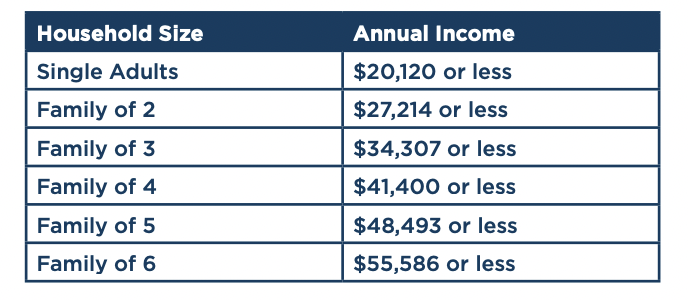
Medicaid expansion in North Carolina has been a hot topic in recent years, sparking debates and discussions across the state. North Carolina did not expand Medicaid when the Affordable Care Act (ACA) was introduced. However, the state recently announced it would expand Medicaid beginning December 1, 2023. This is good news for disabled individuals who cannot work and who qualify under the new program’s guidelines.
In this blog post, we’ll delve into the key aspects of Medicaid expansion in North Carolina. And, discuss how the expansion impacts disability claims.
The Basics of Medicaid Expansion in North Carolina
Medicaid is a federal and state program that provides health coverage to eligible low-income individuals and families. Under the ACA, states had the option to expand Medicaid eligibility to cover more low-income adults. The federal government promised to cover most of the costs associated with this expansion. States gradually contribute a small percentage over time. However, many states, including North Carolina, initially chose not to expand Medicaid.
Pros of Medicaid Expansion in North Carolina for Disability Claims
- Increased Access to Healthcare
One of the primary arguments in favor of Medicaid expansion is that it increases access to healthcare. By expanding eligibility, more people become eligible for Medicaid coverage, reducing the number of uninsured residents in the state. This can lead to earlier detection and treatment of health conditions, ultimately improving health outcomes.
Claimants applying for Social Security Disability Insurance (SSDI) or the resource-based Supplemental Security Income (SSI) programs often cannot work, losing their health insurance. Without money to pay for private insurance, many go without, leading to higher utilization of high-cost resources like emergency rooms. Under the new Medicaid expansion program, low-income families and disabled individuals can access primary care providers and other specialists as needed.
- Stronger Medical Evidence
With access to a primary care provider and other treating professionals, disability claimants can more easily gather supporting medical evidence and documentation for their claims. SSI or SSDI claimants can maintain regular visits with treating providers which strengthens their application and helps SSA better determine the long-standing impacts of a claimant’s medical impairments on their ability to work.
While Medicaid expansion in North Carolina will strengthen strong claims in this way, it will also help disability attorneys more efficiently eliminate weak or fraudulent claims.
- Improved Financial Stability
By reducing the number of uninsured individuals, Medicaid expansion in North Carolina lowers uncompensated care costs for hospitals and clinics. Uncompensated care occurs when healthcare providers deliver services to uninsured patients who cannot pay for their treatment. With Medicaid expansion, more patients have insurance coverage, reducing the financial strain on healthcare facilities and potentially lowering healthcare costs for everyone.
It also provides low-income claimants working below Social Security’s substantial gainful activity (SGA) limit with a safety net for healthcare so they can direct their limited resources to food and shelter.
Qualifying for Medicaid in North Carolina
The North Carolina Medicaid expansion provides coverage for most health services, including:
- Primary care services by a physician
- Hospital services whether you are admitted (inpatient) or go home the same day (outpatient)
- Maternity and postpartum care
- Vision and hearing services
- Prescription drug benefits to pay for prescribed medicines
- Behavioral health care to address mental health impairments
- Preventative and wellness services
- Medically-prescribed devices and therapies
Individuals can apply for Medicaid with an in-person visit or by calling their local DSS office. You can also apply online at the newly updated ePASS website. To meet the basic requirements for North Carolina’s Medicaid program, you must live in state, be aged 19 – 64 and be a United States citizen. If you were previously eligible for Medicaid, you’re still eligible and nothing changes for you. In addition to the requirements listed above, to qualify for Medicaid expansion in North Carolina, your household income must fit within the chart below:

Disability Lawyers in Greensboro, NC
The decision to expand Medicaid in North Carolina improves access for un- or under-insured individuals throughout the state. With access to non-emergency healthcare, individuals suffering from severe, untreated medical conditions preventing them from working will now have trusted medical professionals they can rely on. This is life-changing for many of our existing clients at Collins Price and for those we will serve in future.
As disability lawyers in Greensboro, NC we also welcome the transparency and efficiency this expansion allows, helping us efficiently support and take on claims that are truly deserving.
This content was provided by Collins Price, PLLC, a disability law firm practicing for decades in the Greensboro, NC and surrounding areas. If you are considering applying for disability, contact our office today for a free consultation on your claim.



